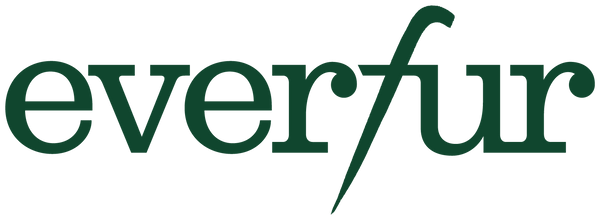Dog sneezing?
Sneezing is an involuntary action often triggered by irritants or other causes, due to which dogs expel air and other things forcefully through the nose and, to some extent, the mouth in a bid to get rid of causative agents.
Is sneezing normal or not?
Sneezing may be normal or not, depending on the underlying causes and reasons. Occasional sneezing is normal when mild irritation causes the dog to sneeze, or it may be normal communicative behavior when it is not excessive. If the dogs sneeze excessively without control, it might be due to some serious medical concerns, so it is recommended to go to a veterinarian and get examined and assessed so that the difficulty of the dogs can be mitigated.
Causes or reasons behind dog sneezing a lot:
Inflammation of the upper respiratory tract:
Inflammation of the upper respiratory tract due to any reason may be the contributing factor behind sneezing in dogs. Due to inflammation, dogs get irritated and involuntarily try to get rid of the causes of inflammation. If any inflammatory signs, such as redness, swelling, or heat, are observed in the upper respiratory tract, treat them immediately with anti-inflammatory medicines or according to the prescription of a veterinarian. Don't ignore such signs; without delay, take the dog to a veterinarian to get the issues addressed.
Irritation:
Irritants in the air, like dust particles, pollen, smoke, perfume, etc., cause the dog to sneeze excessively because some dogs are sensitive to these irritants. Irritation of the respiratory mucosal lining is the leading cause of sneezing, so try to get this one fixed. Keep the dogs away from irritants; the air should be pollution-free, which will alleviate the sneezing in dogs.
Allergens causing allergies:
Allergy-causing agents are called allergens. Some dogs are atopic to allergens and show an excessive immune response against allergens, which will eventually lead to sneezing a lot. Allergens maybe environmental factors like dust particles, grains, smoke particles, or innocuous foreign bodies. Eliminating the allergens will reduce the sneezing in dogs.
Sneezing due to happiness or enjoyment:
It’s normal for a dog o sneeze during playtime if there are no other sympoms .It can be sign of your dog being happy and content.
Foreign bodies stuck in nasal passages:
When foreign bodies are accidentally stuck in the air passage of dogs, they start to sneeze profoundly to eliminate the stuck bodies. Stuck bodies may be grass blades, sticks, etc., as they become irritating and discomforting for dogs, so they sneeze a lot.
Infection of the upper respiratory tract:
Infection of the upper respiratory tract due to bacteria, viruses, or other microorganisms causes the dogs to sneeze. Sneezing due to infection is often accompanied by other symptoms like nasal discharge, bloody nasal discharge, etc.
Parasitic attack on the respiratory tract:
Parasites like mites reside in the nasal passages of dogs, which cause severe irritation and restlessness. Symptoms include profound sneezing and frequent discharge from the nose.
Tumors or neoplasia in the nose:
The tumors could be benign or malignant .Dogs sneeze a lot because of the growth in their nasal cavities, which irritates and infects them If you witness any signs or symptoms of tumors or growth, seek immediate veterinary intervention, as it may endanger your beloved canine friend.
Diagnostic options:
Take the dogs to the veterinarian to figure out the real culprits behind dog sneezing. A veterinarian may first take a history and thoroughly conduct a physical examination of ten dogs, e.g., e.g., a mouth, nose, and eye checkup. Tools to determine the actual causes may include an X-ray, CT scan, biopsy, blood work, discharge sample, tumor sample, etc.; these will help identify the real triggers of the dog sneezing.
How to get rid of awkward, excessive sneezing:
There are many treatment options available to eliminate the cause of sneezing.
For infection, use antibiotics aimed at killing bacteria residing in the upper respiratory tract and causing infection of the upper respiratory tract.
For viruses: for viral infections, treat them with antiviral and supportive therapy to remove the virus.
Fungi: use antifungal medications to remove the fungi from the nasal passages.
Antiparasitic medicines to eliminate parasites.
Foreign bodies or particles stuck in the airways can be easily extracted by a trained veterinarian. This requires anesthesia or sedating agents, and after removing the particles, treat them with anti-inflammatory drugs and antibiotics to prevent inflammation and infection.
Growths such as polyps or neoplasia can be eliminated by either surgery or radiotherapy. Consult trained veterinary professionals to get these works done, as these are sensitive, arousing high risks for the dogs.
Addressing the sneezing issues at home:
When you are confident that the underlying causes of your sneezing are mild irritants and environmental factors, you can safely address these issues without veterinary or medical assistance. Keep the environment clean and pollution-free, and avoid contact between allergens and dogs to prevent excessive sneezing.
When to go to the vet::
Whenever you notice dogs sneezing a lot with other symptoms like bloody discharge from the nose, abundant mucus production, runny nose, prolonged sneezing with jerks, etc., there is something to worry about. Go to the veterinarian and inform him about the history and behavior of your dogs. He will examine the dog the dog thoroughly and treat it accordingly.
Conclusion:
While dogs may sneeze for no apparent reason, as a sign of delight or to communicate, it’s important to recognize that severe and persistent sneezing could be a indication of an health problem issue if you want to maintain fit and healthy dog partner .If your pet exhibit strange or unusual sneezing behavior, get immediate medical attention.










